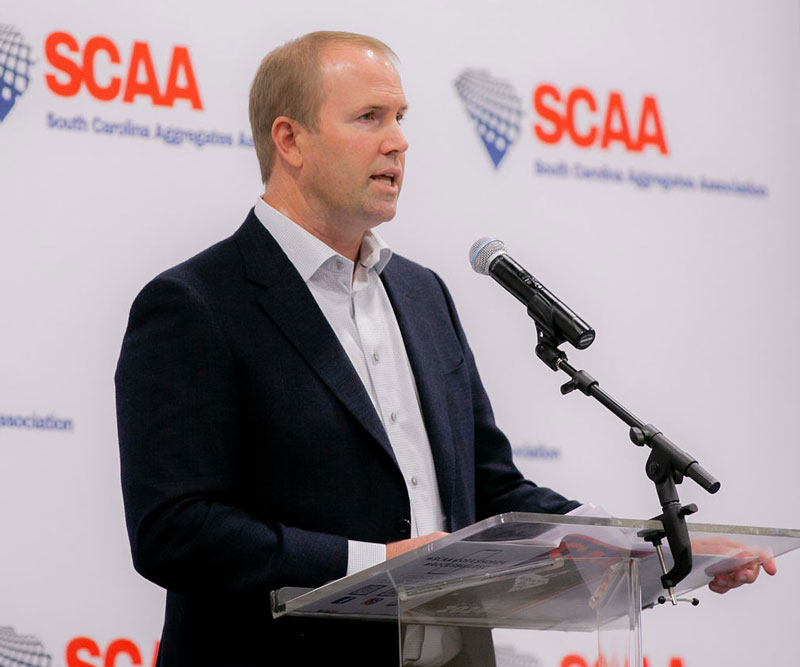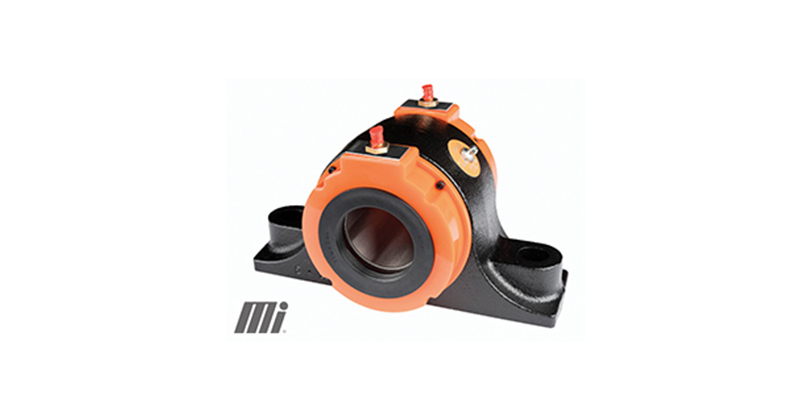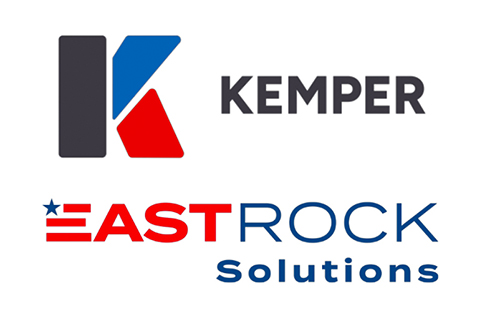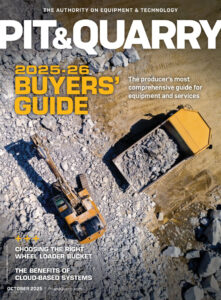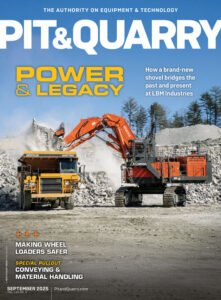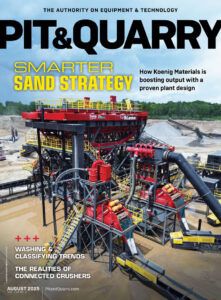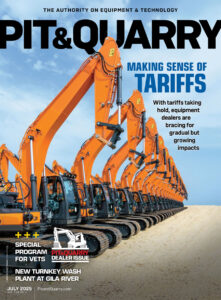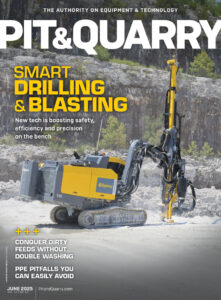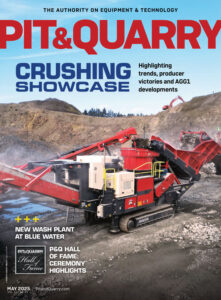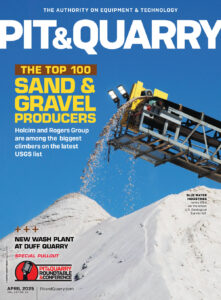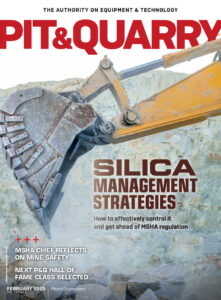Ted Baker II, CEO of Blue Water Industries, will become chair of the National Stone, Sand & Gravel Association (NSSGA) during the organization’s March 23-26 Annual Convention in St. Louis. Baker is in line to succeed Jim Nickolas, executive vice president and CFO at Martin Marietta, as NSSGA chair.
Ahead of the convention, Pit & Quarry connected with Baker to capture his industry outlook, as well as his goals and priorities for NSSGA in the year ahead.

P&Q: How would you characterize the state of the aggregate industry here in early 2025 as you prepare to take over as NSSGA chairman?
Baker: Most of our customers are pretty optimistic right now going into the next four years. They feel good about where their businesses are. It’s not as frothy as it was back in 2021, but we’ve got a healthy amount of business and the economy is strong.
We feel a lot of optimism and our customers feel a lot of optimism that you’ve got some good, solid construction activity going on right now with some room to grow over the next four years. There’s an opportunity to grow that over the next four years.
P&Q: You will take over as NSSGA chairman just two months after the Trump administration settles in and nearly three months after the 119th Congress convenes. That’s a lot of change in Washington. What impact do you sense the new political landscape might have on NSSGA? What opportunities might be ahead? Similarly, what challenges do you foresee having to address with so many new officials in place in Washington?
Baker: We’ve got a great opportunity. We’ve got an administration that’s been very vocal about deregulation. It’s been very vocal about eliminating 10 regulations for, let’s say, every one they put in. That’s an opportunity.
We’re going to have a chance to have our voices heard. Half the Cabinet, the chief of staff and the president are from Florida, which is our home base. We’re hopeful we’ll be able to have our voices heard there, as well as in Congress.
With the momentum that is behind eliminating regulation, I think our hope is that we can work with the administration and Congress to have common-sense, science-based regulation, but not overly burdensome regulation. We want to be able to get the dollars out to the states and move the needle from a road construction and infrastructure construction perspective a little bit faster than we’ve seen over the last four years.
The challenge is really related to the slim majorities on Capitol Hill – both in the Senate and in the House. To move legislation, it’s going to require a lot of either unity among Republicans or getting some of the Democrats to come over and work with the Republican Congress to get an infrastructure bill done. The same goes for getting any other sort of legislation done.
That slim majority means it’s going to be tough to just slide any legislation through without compromise and a lot of hard work and advocacy. That’s the main challenge as we think about Congress and the Trump administration.
P&Q: What industry issues do you foresee having to tackle in the next 12 months as NSSGA chairman? Where does the 2026 expiration of the Infrastructure Investment & Jobs Act sit on your list of priorities to tackle?
Baker: What’s most on our mind right now with infrastructure is trying to set the stage for the next bill.
As we look to a future where you have more fuel-efficient cars and a lot of electric cars, we need infrastructure funding that is borne by all users and not just some. We need predictable investment. We need a sustainable revenue source – not just a gas tax that’s fixed at the same level it was back in 1993. And we need all users to participate. These are key issues we need to tackle as we advocate with Congress on the next infrastructure bill.
On the regulatory front, the main thing on a lot of people’s minds right now is making sure we can advocate against tariffs. A lot of the Southeastern states don’t have indigenous rock. You must be able to import rock from overseas to meet the demand of the state DOTs (departments of transportation) and the construction industry. If you disrupt that, you’re not just going to disrupt our industry but road construction and infrastructure construction. That’s going to have a meaningful impact if it’s not addressed.
The ‘Buy American’ exemption for aggregates is also really important to the Southeast in particular. That’s something we’d like to see continue as we work with the administration.
P&Q: What other issues do you see yourself getting involved in as NSSGA chairman?
Baker: If we’re talking about the regulatory side, we’d like to work with MSHA (the Mine Safety & Health Administration) to make sure its regulations make sense and are science-based.
We have an opportunity to reform the Toxic Substances Control Act in a way that will give certainty to our members on the definitions of minerals that have previously caused issues for our members. Using this time to go on the offensive and change things for our benefit is a great place to be.
Additionally, we have a great opportunity in the environmental space. We have a chance to get the Waters of the U.S. rule amended to be consistent with the Supreme Court’s ruling on Sackett v. EPA. NSSGA will work with the Trump administration to ensure that disturbing isolated waters and dry areas as part of normal operations does not require federal permits.
P&Q: Anything else you’d like to add related to your term as NSSGA chairman?
Baker: I’ve been involved in working for really large producers, medium-sized producers and now a small producer. I’d like to feel that I understand the issues of all our members and their different perspectives. I look forward to working with all our members, having an open door and being understanding of what they’re going through.
Related: Drilling Deeper Bonus: The Trump administration, a new Congress and aggregates

